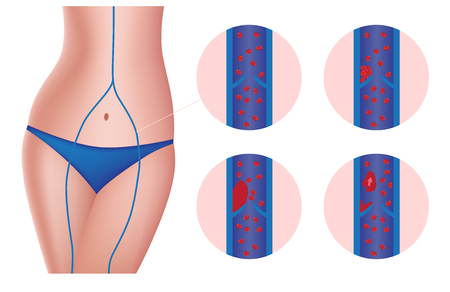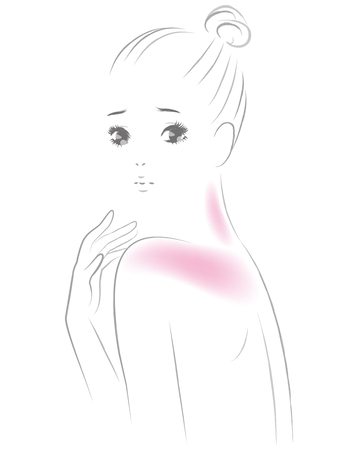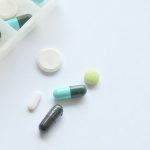1. Understanding Skin Dehydration and Premature Aging
When it comes to keeping your skin looking youthful, hydrated, and full of life, understanding the difference between dry skin and dehydrated skin is key. These two terms are often used interchangeably, but they actually refer to different conditions that affect your skin in unique ways.
Dry Skin vs. Dehydrated Skin
Let’s break down the difference:
| Dry Skin | Dehydrated Skin |
|---|---|
| Skin type (genetic or long-term condition) | Skin condition (can happen to any skin type) |
| Lacks oil (sebum) | Lacks water (moisture) |
| Feels rough, flaky, itchy | Looks dull, feels tight, fine lines more visible |
| Needs nourishing oils and creams | Needs hydrating ingredients like hyaluronic acid |
How Dehydration Affects Aging
When your skin lacks moisture, it becomes less resilient and more prone to showing signs of aging. Dehydrated skin can exaggerate the appearance of fine lines and wrinkles because it loses its plumpness and elasticity. Think of a grape turning into a raisin—the loss of water leads to a shriveled look.
Common Signs of Dehydrated Skin That Accelerate Aging:
- Increased visibility of fine lines and crow’s feet
- Tightness or discomfort after cleansing
- Dull or uneven skin tone
- A “tired” appearance even with enough sleep
The Importance of Hydration for Youthful Skin
Keeping your skin well-hydrated is one of the most effective ways to maintain its smooth texture and youthful glow. Hydrated skin appears fuller, firmer, and more radiant. It also helps maintain the skin barrier, which protects against environmental stressors like pollution and UV rays—two major culprits behind premature aging.
Pro Tip:
Look for products with ingredients like hyaluronic acid, glycerin, aloe vera, and ceramides. These help attract and lock in moisture, giving your skin that fresh, dewy finish.
Your journey to healthier, more youthful-looking skin starts with understanding what your skin truly needs—and hydration is at the heart of it all.
2. Common Causes of Skin Dehydration
Your skin needs moisture to stay smooth, plump, and youthful-looking. But everyday habits and environmental factors can silently strip that hydration away. Understanding these common causes of skin dehydration can help you make better choices to protect your skin.
External Factors
Environmental conditions play a big role in how hydrated your skin feels. Here are some of the most common external culprits:
| Factor | How It Affects Your Skin |
|---|---|
| Cold Weather | Low humidity levels in winter pull moisture from your skin, leading to dryness and tightness. |
| Hot Showers | Excessive heat strips away natural oils that help lock in moisture. |
| Air Conditioning & Heating | Both can lower humidity indoors, drying out your skin over time. |
| Sun Exposure | UV rays break down collagen and dehydrate the skins surface, speeding up aging. |
| Harsh Skincare Products | Cleansers with alcohol or strong acids can strip away your skin’s protective barrier. |
Internal Factors
Your daily routines and lifestyle choices also influence your skin’s hydration levels from the inside out:
| Lifestyle Habit | Impact on Skin Hydration |
|---|---|
| Not Drinking Enough Water | When youre dehydrated internally, your skin reflects it with dullness and dryness. |
| Poor Diet | Lack of healthy fats and essential nutrients weakens your skin’s barrier function. |
| High Caffeine or Alcohol Intake | These act as diuretics, increasing water loss in the body and drying out the skin. |
| Lack of Sleep | Your skin repairs itself at night—without rest, this process is disrupted, leading to dryness. |
| Stress | Chronic stress can interfere with hormone balance, which may reduce your skins ability to retain moisture. |
Skincare Habits That May Be Hurting Your Skin
You might be unknowingly contributing to dehydration through well-meaning skincare steps. Over-exfoliating, skipping moisturizer, or using products with too many active ingredients (like retinol or AHAs) without proper hydration support can compromise your skin barrier. Its all about finding the right balance for your unique skin type.
Quick Tip:
If your face feels tight after washing, thats a sign your cleanser may be too harsh. Switch to a gentle, hydrating formula and always follow up with a good moisturizer while your skin is still damp to seal in water effectively.
Your Skin Reflects Your Daily Choices
The good news? Most causes of dehydration are manageable once youre aware of them. By tweaking a few habits and choosing more hydrating options—both in skincare and lifestyle—you’ll start noticing smoother, more supple skin that glows from within.

3. Hydration from Within: The Role of Diet and Water Intake
When it comes to keeping your skin looking youthful, glowing, and plump, what you put inside your body is just as important as what you put on your skin. Staying hydrated from within helps maintain skin elasticity and prevents early signs of aging like fine lines and dullness. Let’s break down how water, nutrient-rich foods, and healthy fats work together to support your skin.
Why Water Matters
Water plays a critical role in maintaining skin hydration. When youre dehydrated, your skin can appear dry, tight, and flaky — all signs that can make you look older than you are. Drinking enough water daily helps flush out toxins and keeps your skin cells functioning properly.
How Much Water Should You Drink?
While everyone’s needs vary, a common guideline is the “8×8 rule” — eight 8-ounce glasses per day, which equals about 2 liters or half a gallon. However, if youre active or live in a hot climate, you may need more.
Skin-Loving Nutrients in Your Diet
Your diet has a big impact on your skin’s health. Certain vitamins and minerals help boost collagen production, protect against sun damage, and improve moisture retention.
| Nutrient | Benefits for Skin | Food Sources |
|---|---|---|
| Vitamin C | Boosts collagen production and protects against free radicals | Citrus fruits, strawberries, bell peppers |
| Vitamin E | Protects skin cells from oxidative stress | Almonds, sunflower seeds, spinach |
| Zinc | Supports skin healing and reduces inflammation | Pumpkin seeds, chickpeas, beef |
| Beta-Carotene | Acts as a natural sunblock and antioxidant | Carrots, sweet potatoes, kale |
The Power of Omega Fatty Acids
Healthy fats — especially omega-3 and omega-6 fatty acids — play a key role in maintaining the skin’s lipid barrier. This barrier locks in moisture and keeps irritants out. Omega fatty acids also reduce inflammation, which helps with conditions like dryness or redness.
Where to Find Them:
- Omega-3: Fatty fish (like salmon), flaxseeds, chia seeds, walnuts
- Omega-6: Sunflower oil, soybean oil, pumpkin seeds
A Quick Tip:
If you’re not getting enough omega-3s through food alone, consider a high-quality fish oil supplement—but always check with your healthcare provider first.
Nourishing your body with the right fluids and foods doesn’t just benefit your overall health—it’s one of the most effective ways to keep your skin soft, smooth, and youthful-looking from the inside out.
4. Choosing the Right Skincare Products for Hydration
When it comes to keeping your skin hydrated and youthful-looking, choosing the right skincare products is key. Dry, dehydrated skin can lead to fine lines, dullness, and premature aging—but with the right ingredients, you can help restore moisture and maintain a plump, glowing complexion.
Top Hydrating Ingredients to Look For
Not all skincare products are created equal. Some contain powerhouse ingredients that are specifically designed to attract and retain moisture. Here are a few of the most effective:
| Ingredient | What It Does | Commonly Found In |
|---|---|---|
| Hyaluronic Acid | Attracts water to the skin and holds up to 1,000 times its weight in moisture | Serums, moisturizers, sheet masks |
| Ceramides | Help restore the skin barrier and lock in hydration | Creams, lotions, cleansers |
| Glycerin | Draws moisture from the air into the skin and keeps it soft and smooth | Toners, facial cleansers, moisturizers |
How to Choose Products That Work for You
When shopping for skincare products in the U.S., its important to read labels and understand what your skin truly needs. If your skin feels tight or looks dull, go for a hydrating serum with hyaluronic acid. If you’re dealing with flakiness or a compromised barrier, ceramide-rich creams can be a game changer. And if youre on a budget, glycerin-based products offer great hydration at an affordable price point.
Tips for Building a Hydration-Focused Routine:
- Cleanser: Use a gentle, non-stripping cleanser with glycerin or ceramides.
- Toner: Choose alcohol-free toners that include humectants like glycerin.
- Serum: Apply a hyaluronic acid serum while your face is still damp for better absorption.
- Moisturizer: Lock everything in with a moisturizer rich in ceramides or peptides.
- Sunscreen: Always finish with SPF during the day to protect your hydrated skin from UV damage.
The right combination of these ingredients can help prevent dehydration and keep your skin looking fresh and full of life—no matter your age or skin type.
5. Lifestyle Habits to Maintain Healthy, Hydrated Skin
Maintaining glowing, hydrated skin goes beyond just what you apply topically—your daily habits play a huge role. Here are some practical lifestyle tips that can help keep your skin plump, soft, and youthful-looking.
Use a Humidifier at Home
Indoor air—especially during winter or in air-conditioned spaces—can be very dry, which pulls moisture from your skin. A humidifier adds moisture back into the air, helping your skin stay hydrated even while you sleep.
Best Times to Use a Humidifier:
| Time of Day | Why It Helps |
|---|---|
| At Night | Your skin repairs itself overnight; moist air helps improve hydration. |
| During Cold Months | Heaters dry out indoor air; a humidifier balances humidity levels. |
| If You Use AC Often | A/C systems strip moisture from the environment; humidifiers counteract this effect. |
Avoid Common Skin-Drying Mistakes
You may unknowingly be doing things that dehydrate your skin. Here are a few habits to watch out for:
Common Mistakes and What to Do Instead:
| Mistake | Better Habit |
|---|---|
| Taking hot showers | Use lukewarm water to avoid stripping natural oils. |
| Cleansing too often or with harsh soaps | Choose gentle, hydrating cleansers and limit washing to twice daily. |
| Skipping moisturizer after washing your face | Apply moisturizer within 1–2 minutes after cleansing to lock in hydration. |
| Caffeine overload | Balance coffee with plenty of water throughout the day. |
Add Mindfulness to Reduce Stress-Related Dehydration
Your skin is closely connected to your emotional well-being. Chronic stress increases cortisol levels, which can lead to dehydration and premature aging. Incorporating mindfulness into your routine helps balance both body and mind.
Simple Mindfulness Practices:
- Breathe deeply: Take five deep breaths when you wake up and before bed.
- Meditate: Even 5–10 minutes a day can lower stress hormones that affect hydration.
- Create a calming evening routine: Turn off screens early, use soothing essential oils like lavender, and give yourself time to unwind.
- Stay present during skincare: Treat your skincare ritual as a moment of self-care rather than a chore.
A few small changes in your environment, habits, and mindset can make a big difference in keeping your skin hydrated and youthful-looking every day.


